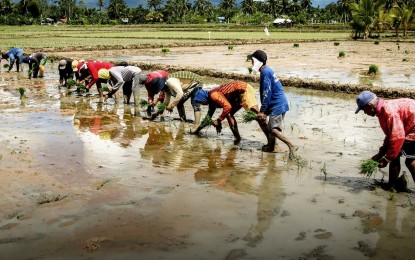
National Irrigation Authority Administrator Eduardo Guillen. (Screengrab from PTV's FB page)
MANILA – The National Irrigation Authority (NIA) on Friday said the repurposing of irrigation water will not only help areas lacking water but will also mean additional revenue for the agency.
NIA Administrator Eduardo Guillen said private companies may buy excess irrigation water for their customers, giving the agency extra income.
“We can talk to the water concessionaires for them to get or buy bulk water. We are now under the Free Irrigation Act, so we also need additional income from our non-irrigation revenues,” Guillen said at the Bagong Pilipinas Ngayon public briefing.
“This will also help us not to rely too much on funding from the national government,” he added.
Aside from generating additional revenue, excess irrigation water can also be repurposed to provide water for domestic use and power generation.
“Our excess water, according to the memorandum of agreement with the National Water Resources Board and the Water Resource Management of the Department of Environment and Natural Resources, can be repurposed for domestic water supply. It can also be used for tourism purposes and of course this is power generation,” he said.
Guillen said that for tourism, they can use big lakes for fishing or water recreation activities.
“Like in Pantabangan Dam, the area is big. We have introduced water recreation activities,” he said.
Guillen said they only use irrigation water for six months and consider repurposing it for the remaining half of the year.
“With the number of dams we have and the amount of domestic water supply we need, we think this is a big help to us and also the water concessionaires,” he added.
Guillen also underscored the importance of building new dams.
“It’s important to have high dams so we can save water during the rainy season and we will have supply during the dry season. This means that our food and farm production is more secure. It will also help mitigate floods,” he said. (PNA)
